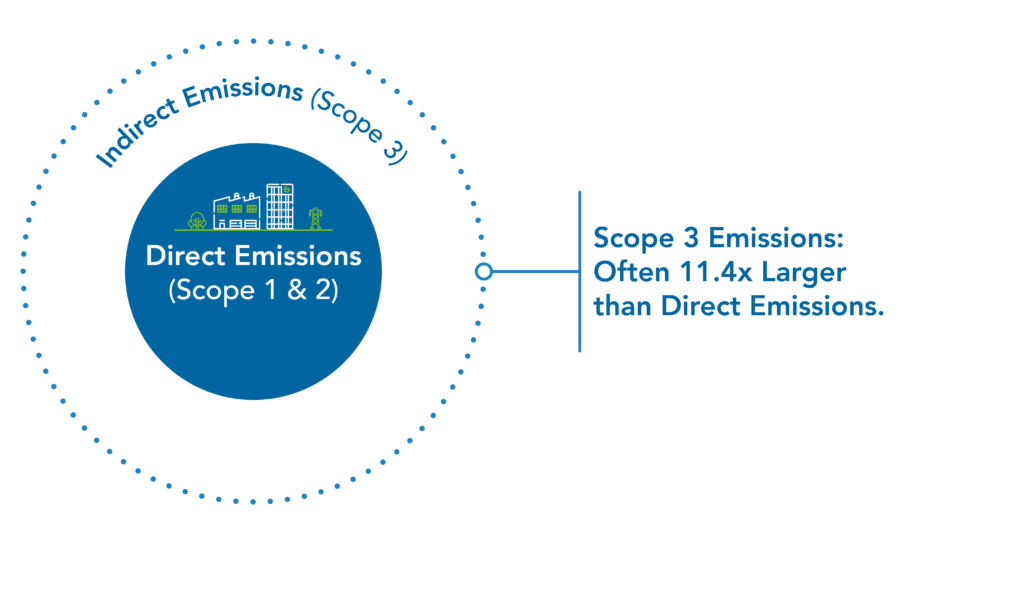The Blog
A Collaborative Approach to Decarbonizing the Supply Chain: Partnering for Greater Impact
![A Collaborative Approach to Decarbonizing the Supply Chain[1]](https://renewep.com/wp-content/uploads/2024/11/RENEW-Blog-Featured-Image-A-Collaborative-Approach-to-Decarbonizing-the-Supply-Chain.jpg)
Understanding Scope 3: The Challenge Beyond Direct Emissions:
Many organizations are now committing to the Science Based Targets initiative (SBTi), taking responsibility not only for reducing their direct emissions but also for the broader, often more complex emissions that occur across their value chains. These emissions, known as Scope 3, frequently make up the majority of a company’s carbon footprint. On average, supply chain emissions are 11.4 times larger than a company’s direct emissions, according to research from the Carbon Disclosure Project (CDP) and the Science Based Targets initiative.

Breaking down Barriers: Engaging Suppliers and Competitors:
Throughout 2024, Renew Energy Partners (RENEW) has actively participated in numerous events and working groups focused on Scope 3 emissions reduction. Traditional competitive barriers are giving way to a shared challenge: reducing Scope 3 emissions. Achieving sustainability targets, particularly those involving Scope 3, demands an unprecedented level of collaboration.
RENEW’s Collaborative Success: The Honda North America Partnership
At RENEW, we partner with companies and their supply chains to reduce carbon emissions and achieve profit targets. A key example is our collaboration with Honda North America on their Green Excellence Framework, which guides suppliers toward meeting Honda’s Triple ZERO 2050 Vision—net zero product emissions, 100% carbon-free energy, 100% sustainable materials with zero water intake and zero waste output. Honda leads the way by providing suppliers with access to trusted collaborators and service providers who support them in making meaningful progress on their Supplier Sustainability Scorecard.
Empowering Suppliers for a Low-Carbon Future
When companies work closely with their suppliers—whether by sharing resources, technical expertise, or co-investing in greener technologies—they empower their suppliers to adopt sustainable practices more effectively. This collaborative approach accelerates progress and strengthens relationships across the supply chain, building a foundation to meet the challenges of a low-carbon future.




